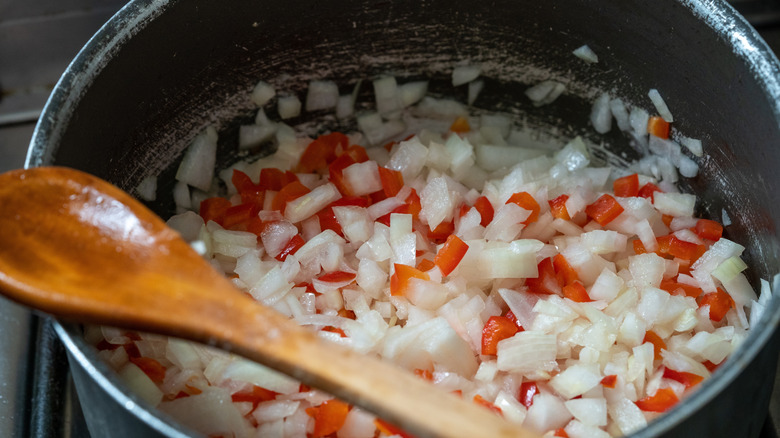Why You Should Think Twice Before Buying Frozen Diced Onions
Onions can make or break a dish. This root vegetable adds its fragrance, a depth of flavor, and a little stingy zing when it's chopped up and used in tacos, salads, and sandwiches. But, when a dish calls for raw onions, count frozen onions as part of the round-up of frozen foods that aren't worth buying. Raw onions that will remain raw in a recipe need to be fresh. Trying to use frozen diced onions on James Beard's famous onion sandwich – it isn't going to taste the same.
Frozen onions will not give your mouth the same crispy, crunchy texture you get when eating raw onions. This is because onions have a high water content. When you freeze them, that moisture expands and pierces through the cell walls. That water seeps out as the onions thaw. Once they are no longer frozen, you will notice that these diced onions lack the rigidity of freshly cut onions. On top of that, they are watery — not a good combo.
When to use frozen onions
Even if you could get past the change in texture, frozen onions have another Achilles heel: They tend to lose a little bit of their flavor identity. While they may keep for longer, they become less potent, punchy, and sharp the longer they remain in your freezer. They still taste like onions, but they're just not the same.
Of course, every frozen food has its place. Even though frozen onions aren't a good substitute when you need raw onions, you can certainly use them in a chicken stir-fry, sauces, or in a mirepoix that you're sauteing for a minestrone soup or chili. No one will be able to tell the difference in these meals. That said, if you need to caramelize your onions, that sogginess that happens when they thaw is going to cause problems, and frozen onions are not going to brown as readily.

